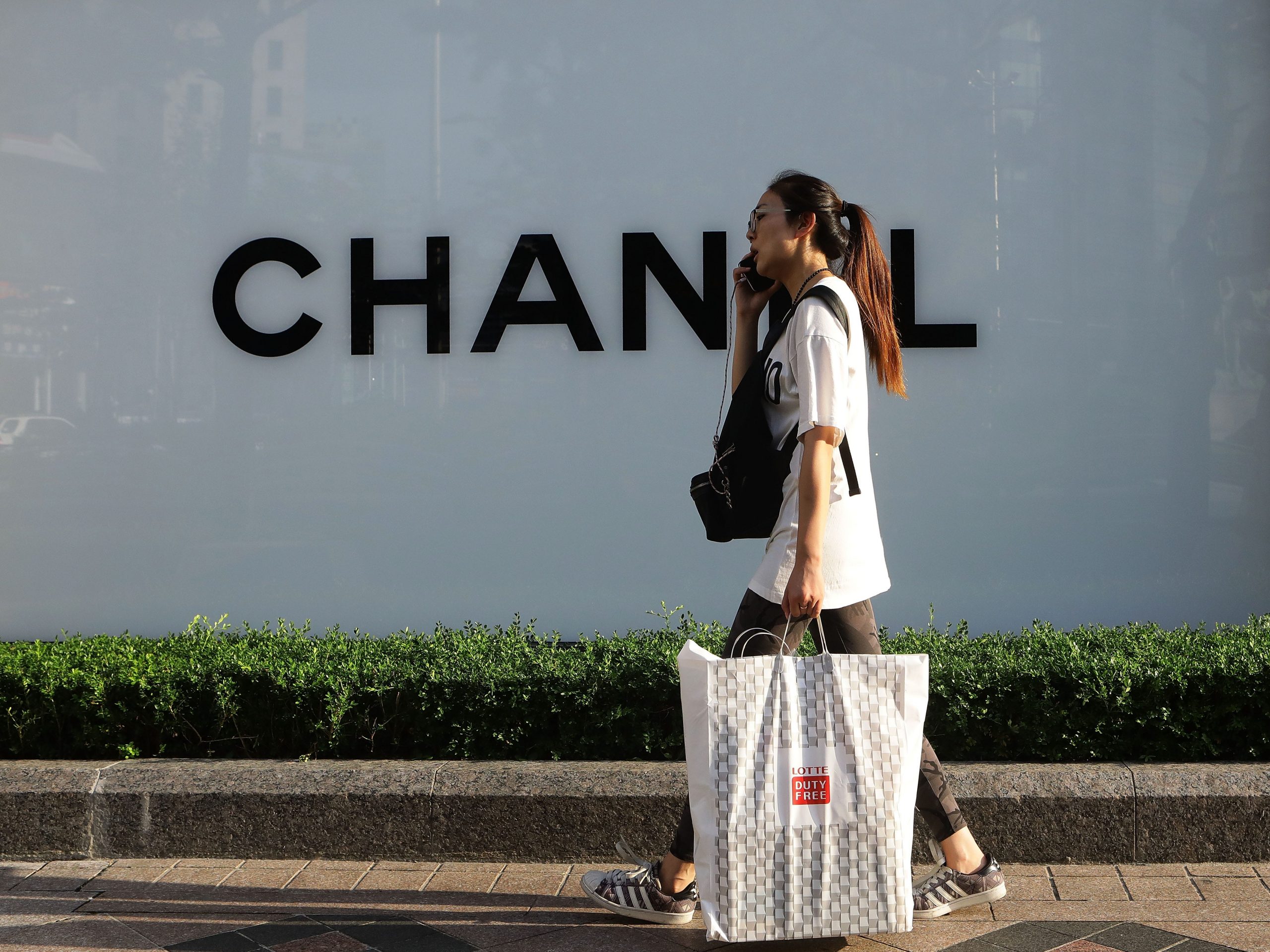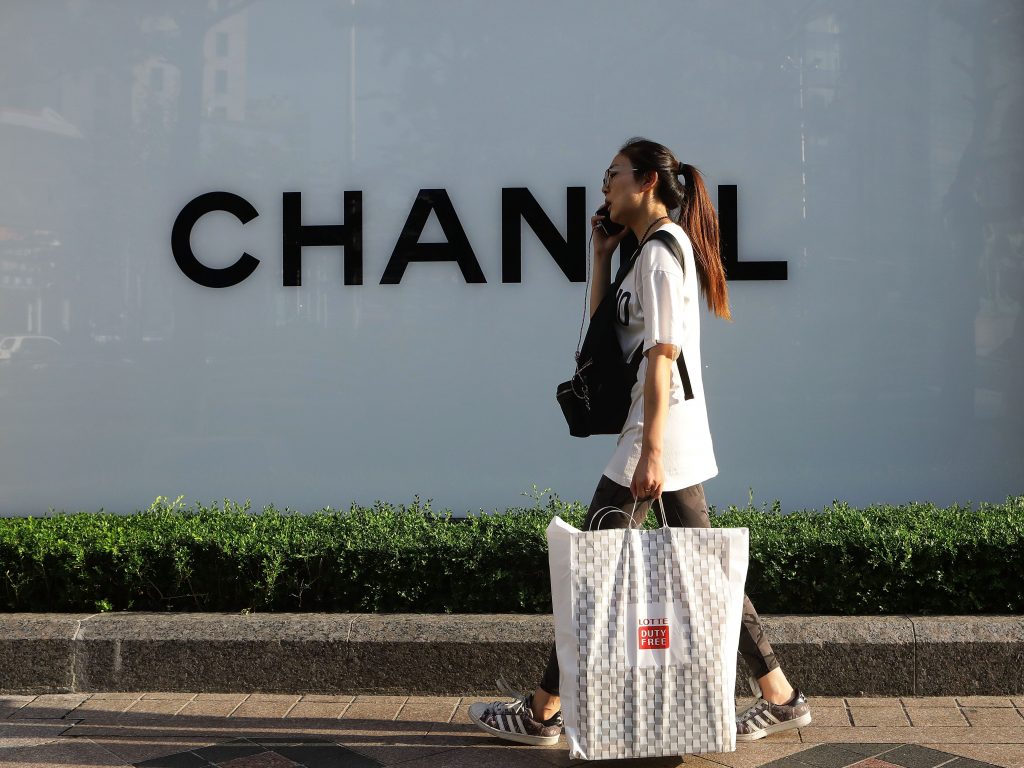
Chung Sung-Jun/Getty Images
- Chanel is limiting its South Korean customers to "one bag, per person, per year" on certain products.
- The purchase limits apply to two popular lines of handbags and the brand's small leather goods.
- Korean media outlets reported that the purchase limits was likely put in place to stop resellers from snapping bags up in mass hauls.
South Korean shoppers angling to collect multiple Chanel bags this year might be disappointed, after the luxury brand adopted a new policy of "one bag, per customer, per year."
According to an exclusive report by South Korean daily newspaper Hankook Ilbo, shoppers at Chanel only be permitted to buy one Timeless Classic flap bag, and one Coco Handle handbag every year.
The news outlet spoke to a Chanel Korea spokesperson, who said the new shopping limits were put in place from October 10, and also apply to small leather goods like wallets and pouches.
It is unclear if this purchase-limit policy is limited to Chanel's South Korean stores, or if other outlets worldwide will follow suit. Chanel Korea did not immediately respond to a request for comment from Insider.
While a reason for these new purchase limits being implemented was not provided, The Korea Times reported that this could be due to a glut of resellers flooding the South Korean market. These resellers obtain Chanel goods through "open runs," a system where people form snaking lines outside Chanel stores in the wee hours of the morning, then dash in once the store opens to snap up choice pieces.
These bags and leather goods are then re-sold with a mark-up of $300 to $400, though shoppers are willing to pay resellers for the convenience of not having to go on "open runs" themselves, reported the Korea Times.
The "open runs" get so intense, reported the Korea Economic Daily, that resellers have started queueing in front of department stores like the Shinsegae mega-store in the Myeong-dong shopping district with camping chairs. There, they wait for the gates to open only to sprint through six or seven malls in the district to do a clean sweep of coveted luxury goods. Some people standing in line told the Korea Economic Daily that going on these "open runs" was a lucrative side hustle that could net them $90 to $270 per piece if they manage to snag a bag their clients want.
South Korea's booming luxury goods market was worth 15 trillion South Korean won ($12.5 billion) in 2020. The Korea Economic Daily separately reported in September that millennials - particularly men in their 20s and 30s - were especially willing to splurge on branded goods, and accounted for around a third of the country's luxury and retail goods market.
